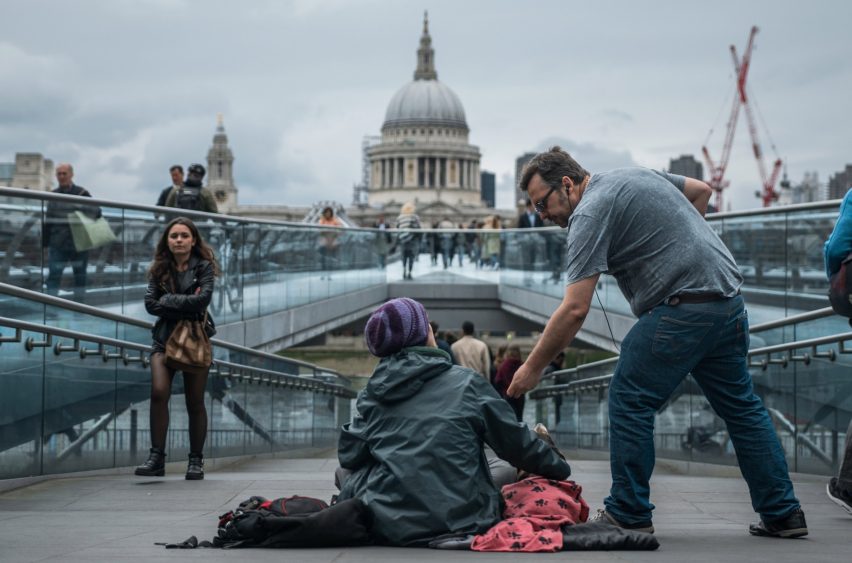This week on Dezeen, the UK government launched a network of homelessness hubs, we spoke to London's rough sleepers, and Berlin's nightclubs opened their doors to rough sleepers.
Dezeen interviewed rough sleepers living in tents outside the Heal's and Habitat design stores in central London, to share their stories at a time when homelessness in the UK has doubled in five years.
Charities have blamed austerity policies and the housing crisis for the spiking numbers, but the British housing minister refuted these claims this week, saying drug addiction and family breakdown were to blame.
The UK government is giving £4.8 million of funding towards 11 Somewhere Safe to Stay hubs around the country to provide on the spot assessments and specialist services.
In Berlin, a nightclub owner is working with German social services to open the door to two of their venues for people in need of a warm and dry place to sleep during the cold winter months.
A report from engineering firm WSP has suggested that London's housing crisis could be alleviated by building over railway tracks in the capital.
In other transport news, tech entrepreneur Elon Musk gave the world the first glimpse of his Boring Company's tunnel network, driving his Tesla through a test tunnel underneath Los Angeles.
Six months after the Morandi overpass collapse, which tragically killed 47 people, Italian architect Renzo Piano unveiled his design for a new motorway bridge for his hometown of Genoa. Piano will also oversee the construction, and do it all for free.
David Chipperfield Architects debuted the new entrance building for Berlin's Museum Complex, with a facade of thin columns that plays homage to the classical architecture of the site.
New images were released of Foster + Partners' designs for a stadium in Qatar. The Lusail Stadium will seat 80,000 and have a golden facade.
MAD Architects also released photos showing the progress on the Nanjing Zendai Himalayas Centre in China, a city-sized complex of mountain-like towers surrounding raised walkways and parks.
Sunglasses that double as headphones were debuted by Bose. The American technology company accessory, called Frames, allows the user to lsiten to music, make calls, and even experience augmented reality.
Japanese design studio Nendo re-invented the ballpoint pen. The bLen has an improved design to reduce rattling noises, with an ergonomic shape that sits in the user's hand more comfortably.
Projects that captured Dezeen readers' imaginations this week included Manhattan apartments by Magdalena Keck, a revamped 1960s Sydney apartment, and an off-grid conservatory-style house in South Africa.

